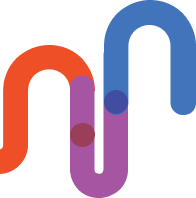

Empowering Students on World Youth Skills Day: The Role of INCLUDE ME+ and WP2
On World Youth Skills Day, we celebrate the creativity, resilience, and potential of young people around the globe. This day, recognized annually on July 15th, highlights the crucial role that equipping youth with skills plays in overcoming global challenges and achieving sustainable development. At INCLUDE ME+, we are deeply committed to empowering students to become active, informed, and responsible participants in their communities through our innovative initiatives.
Why Focus on Students?
Students represent the future leaders, innovators, and change-makers of our societies. They hold the potential to drive significant social change, especially when equipped with the right skills and knowledge. In the context of INCLUDE ME+, we focus on developing students' abilities in mediation, critical thinking, and digital media literacy. These skills are essential for fostering a more inclusive, participatory, and peaceful society.
Introducing Work Package 2 (WP2): Mediation in Media Participatory Action Research
One of the key components of the INCLUDE ME+ project is Work Package 2 (WP2), which centers on Mediation in Media Participatory Action Research. This work package is dedicated to understanding and promoting the role of mediation in digital media as a tool for inclusion and peacebuilding. Here’s what WP2 aims to achieve:
The Role of Young People in Democracy and Digital Media
Young people and students are the cornerstone of democracy, representing the future leaders and innovators who will shape our societies. Their unique perspectives, adaptability, and tech-savviness position them as critical agents in reshaping digital media towards a more socially responsible and peacebuilding role. By equipping youth with the skills of mediation, critical thinking, and digital literacy, we empower them to challenge misinformation, promote inclusive narratives, and foster a culture of dialogue and understanding. Their active participation not only revitalizes democratic values but also ensures that media serves as a catalyst for positive social change, bridging divides and building peaceful, cohesive communities.
Written by Outside Media & Knowledge